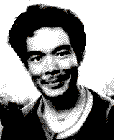|
Melody in Prison: Ngawang Choephel |
||
 |
UPDATE 11 August 2000 |
The following report was issued by the Department of Information & International Relations of the Central Tibetan Secretariat in Dharamsala and was distributed by World Tibet Network News.
A Tearful Meeting with a Caged Nightingale:
Ngawang Choephel’s Mother Visits Her Son in Chengdu Prisonby Tendar
Ngawang Choephel, Tibetan musicologist and student of Middlebury College, Vermont, was arrested in 1995 by the Chinese authorities in Tibet, where he had gone to film Tibetan folk music and performing arts. He is presently serving 18 years of prison term. The following is translation of a report received from Kathmandu:
After receiving permit from the Chinese Embassy in New Delhi for a week-long visit to Tibet, Ngawang Choephel’s mother, Sonam Dekyi, and uncle, Tsering Wangdu, flew from Kathmandu on 1 August 2000, arriving Gongkar airport, near Lhasa, on the same day. Some Chinese policemen boarded the plane to tell them that they should not disembark there. Two Tibetans, a man and a woman, introducing themselves as members of the Lhasa reception office for Tibetans in foreign countries, said they had been assigned as the visitors’ guides. The “guides” escorted them to Chengdu by air.
As they reached Chengdu airport, a Chinese receptionist came and drove them to the reception center. All along the way, the receptionist lectured them on the virtue of the “Motherland” and the evils of the “Dalai clique.” Later, Sonam Dekyi and Tsering Wangdu were taken to a big hospital, which was described as the place where Ngawang had been given medical care.
On the following day, they were escorted to a huge prison complex near Chengdu railway station. Ngawang was brought out and permitted to see the visitors through two barricades of wire meshing. With the prison guards looking on, the prisoner and his visitors managed to look at each other for one hour and exchange a few words. It was apparent to the visitors that Ngawang had no freedom to talk his heart out. The prisoner’s mother was heartbroken.
Their second visit to the prison was also for one hour only. The mother asked for permission to hold her son’s hands. The request was turned down. She was told that Ngawang had not been tortured despite his stubborn resistance. “This, you can ask your son,” they said. It was obvious from Ngawang’s face that he did not have the freedom to tell the truth.
Ngawang told his mother that he had been informed about their arrival only an hour earlier. He had been in Chengdu prison for about a month and had spent a week in the hospital that had been shown to the visitors.
Ngawang’s frail and sickly look overwhelmed his mother and uncle with sadness. The prison guards probably noticed this, for during their second visit they saw that Ngawang had been done up: he was now dressed in a thick, loose-fitting jacket, he had been shaved and his hair dressed. But he still looked pale and sickly. The prisoner detected a look of pathos in his mother’s eyes.
Ngawang advised his mother not to camp on the footpath of Delhi. “Instead, you should stay in a small house and spend your time in prayers and spiritual practice. And, please thank all the people who helped us.”
The visitors left Chengdu on 8 August. Before leaving, the authorities asked them to pay over 8,000 yuan [approx. US $966] as their fares and rent. Ngawang’s mother said, “We had planned to meet Ngawang in Lhasa and had no idea that we would be brought here to Chengdu. We haven’t brought this kind of money. All we have was donated to us by people.”
The “guides” from the Lhasa reception center never let the visitors out of their sight. The visitors were accommodated in two different rooms, with the woman sharing the room of Ngawang’s mother and the man his uncle’s. They visitors were so closely watched that they did not even get to talk freely to each other. They were frequently asked if the Tibetan government had sent them and paid their travel expenses.